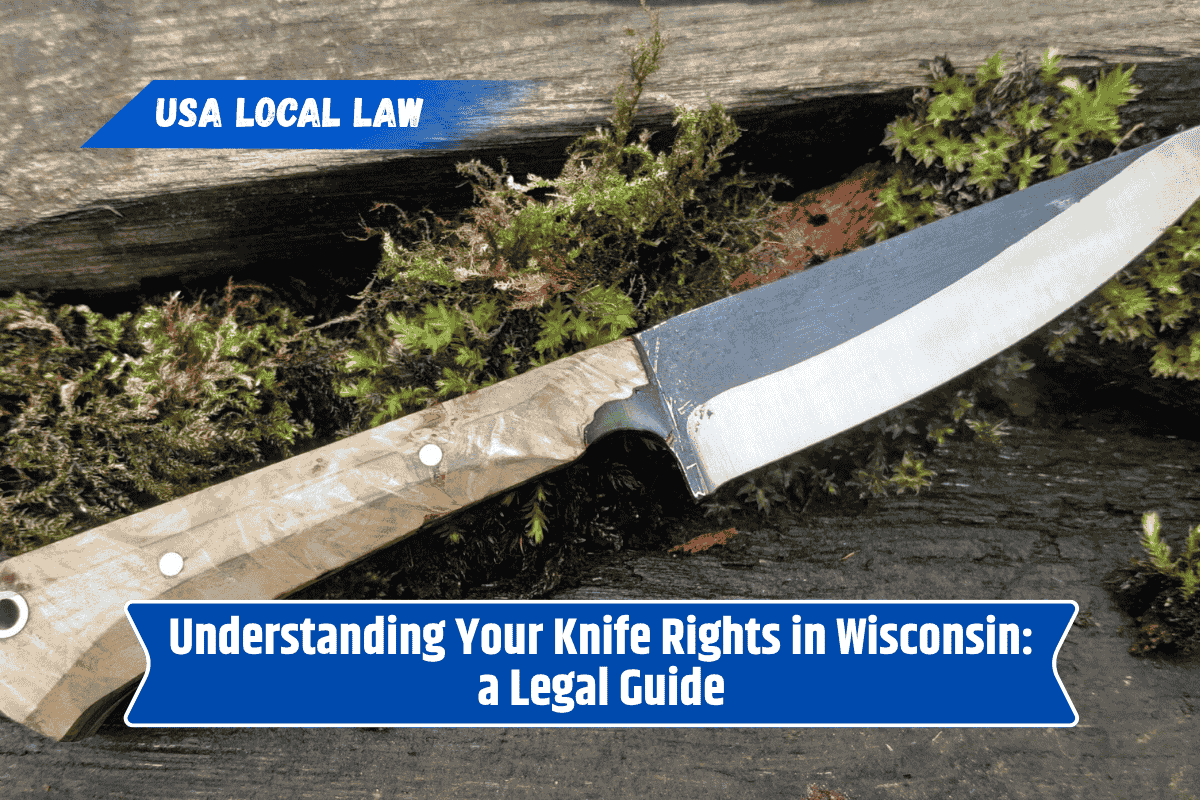Knives are everyday tools for many people—used for cooking, work, hobbies, or even self-defence. But not all knives are treated the same under the law. If you live in or are visiting Wisconsin, it’s important to understand what kinds of knives are legal, where you can carry them, and what the law says about owning and using them.
In this easy-to-follow guide, we’ll explain your knife rights in Wisconsin as of 2025. Knowing the rules will help you stay out of legal trouble and carry with confidence.
Is It Legal to Carry a Knife in Wisconsin?
Yes, carrying a knife is generally legal in Wisconsin. In fact, the state has some of the most relaxed knife laws in the U.S. Since a major law change in 2016, most restrictions on the types of knives you can own or carry have been removed.
So whether it’s a pocketknife, switchblade, or hunting knife, you can legally carry it in Wisconsin, either openly or concealed.
What Types of Knives Are Allowed?
Wisconsin law does not ban any specific type of knife. This means you can legally own and carry:
Pocketknives
Fixed-blade knives
Bowie knives
Switchblades (automatic knives)
Butterfly knives (balisongs)
Throwing knives and stars
There is no blade length limit under state law, which makes it different from many other states.
Concealed Carry Rules for Knives
Before 2016, Wisconsin had laws against carrying certain knives concealed. But now, concealed carry of knives is legal for most adults who are not legally prohibited from owning weapons (such as convicted felons).
That means you can keep a knife in your pocket, backpack, or even wear it under your clothes without breaking state law.
Where Can You Legally Carry a Knife?
Even though Wisconsin state law allows knife carry, some places still have restrictions, such as:
Schools: Carrying any kind of weapon, including knives, on school property is illegal unless you have special permission.
Government buildings: Some courthouses, jails, and municipal offices may have rules banning weapons.
Private property: Stores or businesses can ban knives if they choose. If you ignore their request to leave, you could face trespassing charges.
Always check for posted signs and respect private and public property rules.
Are There Any People Who Can’t Carry Knives?
Yes. If you are a convicted felon, you are not allowed to carry any weapon—including knives—under Wisconsin law. Doing so can lead to serious legal trouble.
Also, minors (under 18) may face different rules depending on the situation. While no specific knife age restriction exists in state law, carrying a knife in a threatening or unsafe way can still result in charges.
Using a Knife for Self-Defence
You are allowed to use a knife for self-defence in Wisconsin, but only under certain conditions. The force you use must match the threat. If someone attacks you and you believe you are in danger of serious harm, using a knife could be legally justified.
However, you cannot use deadly force unless it’s truly necessary, and you must be able to show that you acted to protect yourself or someone else. Misusing a knife can lead to serious criminal charges.
Can Local Laws Be Stricter?
No. In 2016, Wisconsin passed a law that stops cities and counties from making their own knife laws that are stricter than state law. This is called “preemption.” That means local governments cannot ban knives that the state allows.
So wherever you go in Wisconsin—Milwaukee, Madison, Green Bay—you follow the same knife rules.
Wisconsin has some of the most knife-friendly laws in the country. You can carry most types of knives openly or concealed, and there are no blade length limits.
However, you must still follow rules for schools, government buildings, and private property. Also, using a knife for self-defence must be reasonable and legally justified.
Whether you carry a knife for work, safety, or everyday tasks, knowing the law helps you use it responsibly and avoid trouble.
